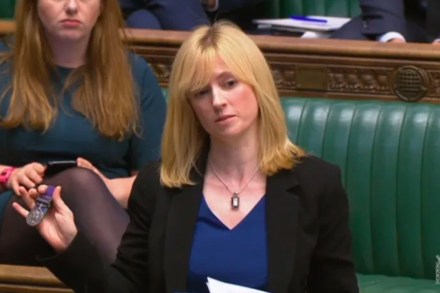Did Kemi Badenoch really call maternity pay ‘excessive’?
Did Kemi Badenoch just say that maternity pay in the UK is ‘excessive’? That’s the claim kicking off the first day of the Tory party conference: an affair that is supposed to act as a ‘beauty pageant’ for the four remaining leadership contenders. It’s not great timing for Badenoch – and it’s certainly not how she and her team will have wanted to kickstart her four days in Birmingham, trying to win over grassroot Conservatives. It’s also, however, not really what she said. “There was a time when there wasn't any maternity pay and people were having more babies.”@KemiBadenoch suggests statutory maternity pay is "excessive".@KateEMcCann | @AdamBoultonTABB pic.twitter.com/j21Vaw7nXN — Times Radio (@TimesRadio) September 29,




















